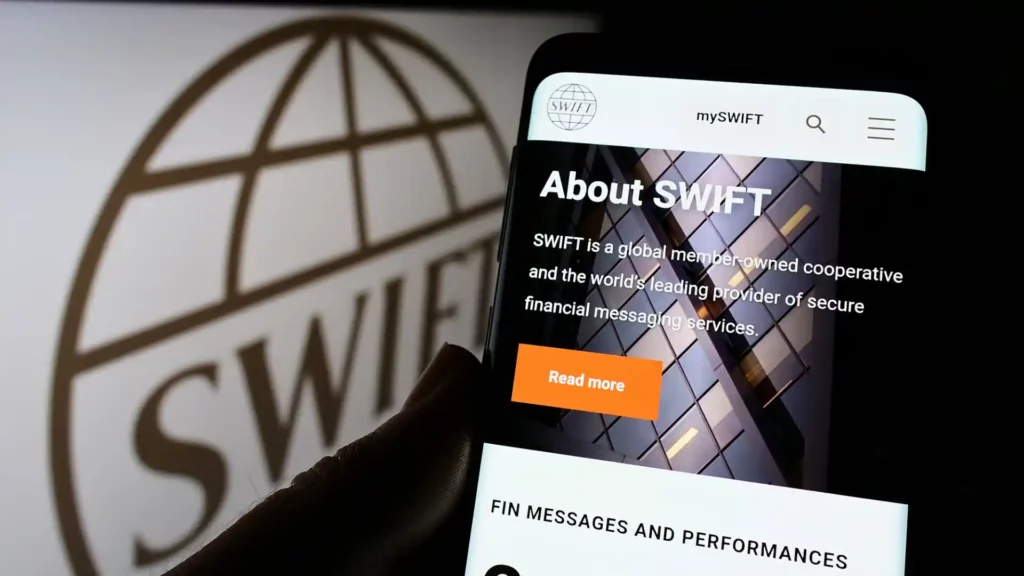SWIFT mentions that the platform could be extended to areas beyond CBDCs in the future
SWIFT, the global bank messaging network is currently working on a new platform that will help connect the central bank digital currencies (CBDC) now in the development to the existing financial system, according to Reuters reports. On March 25, SWIFT stated that it discovered numerous applications for its CBDC solution after the successful six-month test.
Digital currencies are now gaining momentum across the world, and around 90% of the world’s are introducing digital versions of their currencies. Since Bitcoin and crypto are ruling the markets, none of the countries want to be left behind but are also struggling with technical difficulties.
The new platform has applications for digital trade, foreign trade, and securities. SWIFT also mentioned that the platform could be extended to areas beyond CBDCs in the future such as bank-led tokenized deposit networks.
Nick Kerigan, SWIFT’s head of innovation, stated that its latest trial took six months, involving a 38-member group of central banks, commercial banks, and settlement platforms. This, he mentioned, had been one of the largest partnerships on CBDCs and “tokenised” assets till date.
SWIFT mentioned that its new platform involves multiple digital ledger technology (DLT) networks. The firm has also used Hyperledger Besu for the tokenization platform. Hyperledger Fabric and R3 Corda are used for buyer-seller settlement instructions and networks.
The platform focused on reducing the payment system fragmentation by confirming different countries’ central bank digital currencies can all be used together even if they are built on different technologies or protocols. SWIFT’s recent trials with CBDCs have shown the potential for utilizing its existing network to transform the way these transactions are conducted.
Nick Kerigan also mentioned that the results of these trials have been met with interest from the participants, signaling a shift from experimentation to reality. “We are looking at a roadmap to productize (launch as a product) in the next 12-24 months,” Kerigan said. “It’s moving out of the experimental stage towards something that is becoming a reality,” he added.
The idea of automating complex trade and foreign exchange payments using CBCDs not only promises to advance transactions but also helps in reducing the costs of the whole process significantly.
One of the key strengths of SWIFT lies in its extensive reach. It can connect to over 11,500 banks and funds across more than 200 countries. This global network provides a solid foundation for integrating CBCDs effortlessly into existing banking infrastructure, offering an accessible solution that pushes beyond geographical boundaries.
Recently, CBCD was launched in countries like Jamaica, Nigeria, and the Bahamas. This launching was connected with the ongoing trials in major economies such as China and the EU, showing the urgency for SWIFT to adapt to the changing geopolitical scenarios. The timeline for productizing the innovation is set at 12-24 months, but potential delays might change the plans.
Despite the existing geopolitical tensions, the organization remains optimistic about the adoption of CBCDs. There is, however, a possibility of selectively barring institutions from the network but Kerigan doubts if it would be a hindrance for countries considering CBDC integration.
In addition to CBCDs, SWIFT is also observing the expanding market of digital asset tokenization, as predicted by the Boston Consulting Group (BCG). With an estimated $16 trillion worth of assets projected to be tokenized by 2030, the potential for leveraging SWIFT’s network as an instrument for real-time asset issuance and trading is substantial.
Tokenization involves converting traditional assets such as stocks and bonds into digital tokens that can be transacted in a decentralized manner. SWIFT also aims to position itself as a scalable solution for the tokenization of the assets.
